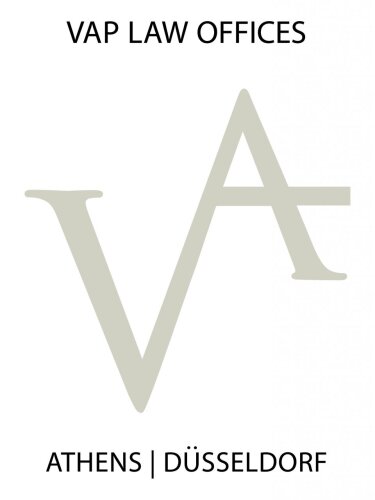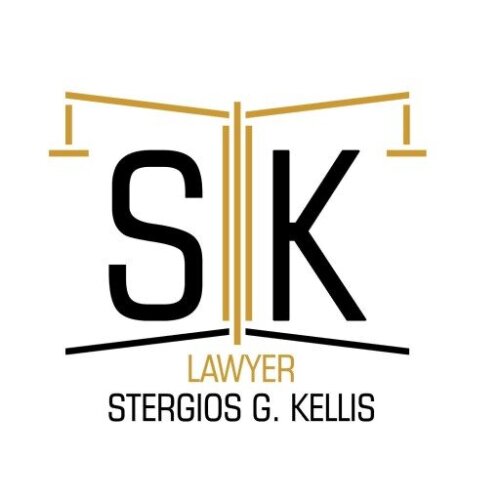Best Antitrust Lawyers in Greece
Share your needs with us, get contacted by law firms.
Free. Takes 2 min.
Or refine your search by selecting a city:
List of the best lawyers in Greece
About Antitrust Law in Greece
Antitrust law in Greece is designed to promote fair competition and prevent anti-competitive practices in the market. This legal framework is crucial for ensuring that businesses operate fairly and that consumers benefit from competitive prices and quality services. The Hellenic Competition Commission (HCC) is the primary authority responsible for enforcing Antitrust laws in Greece. Its role includes investigating potential violations and penalizing companies or individuals that engage in anti-competitive behavior such as cartels, abuse of dominant position, and unlawful mergers.
Why You May Need a Lawyer
Several scenarios might necessitate the need for a lawyer specializing in Antitrust law in Greece:
- You are a business owner who has been accused of engaging in anti-competitive practices and need to defend yourself against these charges.
- You suspect that you are a victim of anti-competitive behavior by other companies and need to understand your legal options.
- Your business plans to merge or form an acquisition, and you want to ensure compliance with Antitrust regulations to avoid hefty fines or deal reversals.
- You need guidance on how to align your business strategies with Greek and European Antitrust laws to avoid future legal complications.
- You require representation during investigations or proceedings initiated by the Hellenic Competition Commission or related entities.
Local Laws Overview
Greek Antitrust laws are primarily governed by Law 3959/2011 on the “Protection of Free Competition.” Some of the key aspects include:
- Cartels: Agreements between competitors to fix prices, restrict output, allocate markets, or rig bids are prohibited.
- Abuse of Dominance: A company with significant market power must not engage in practices that exploit its dominance to the detriment of competition, such as predatory pricing or exclusive dealings.
- Merger Control: Mergers and acquisitions must be notified to the HCC if the combined entity exceeds certain thresholds, ensuring that such mergers do not significantly impede competition.
- State Aid: Measures to prevent state interventions that distort competition and trade in the internal market.
Frequently Asked Questions
What is considered anti-competitive behavior under Greek law?
Anti-competitive behavior includes practices like price-fixing, market division, bid-rigging, and abusing a dominant market position.
How does the Hellenic Competition Commission enforce Antitrust laws?
The HCC investigates potential violations, can impose fines, and requires changes to business practices that contravene Antitrust laws.
Can individuals report suspected Antitrust violations?
Yes, individuals and businesses can report suspected violations to the Hellenic Competition Commission for investigation.
What penalties can be imposed for violating Antitrust laws in Greece?
Penalties can include substantial fines, modification or reversal of conduct or transactions, and in severe cases, criminal sanctions.
What is the relationship between Greek Antitrust laws and EU competition laws?
Greek Antitrust laws are aligned with EU regulations, and the HCC works closely with the European Commission in cross-border or significant cases that affect competition in the EU.
Are there exemptions to Antitrust prohibitions?
Certain agreements that promote economic progress and consumer benefits without completely eliminating competition may achieve exemptions.
How can businesses ensure compliance with Antitrust laws?
Businesses can implement compliance programs, seek legal advice when engaging in joint ventures, and always review their agreements for competitiveness concerns.
What should I do if I receive a notification from the HCC?
It is advisable to consult with a lawyer who specializes in Antitrust law to understand the implications and prepare an appropriate response.
Can international companies be subject to Greek Antitrust laws?
Yes, if their business practices affect competition within Greece's market, international companies can be subject to Greek Antitrust regulations.
What is merger control, and why is it important?
Merger control prevents concentrations that would significantly impede effective competition, ensuring that mergers do not lead to a monopoly or reduce market competition.
Additional Resources
Here are some resources that may be helpful for anyone seeking further understanding of Antitrust law in Greece:
- Hellenic Competition Commission (HCC): The primary authority on competition issues in Greece.
- European Commission's Directorate-General for Competition: Provides guidelines and updates on EU Antitrust regulations.
- Legal and business journals specialized in European competition law.
- Official government publications and amendments to Law 3959/2011.
Next Steps
If you believe you require legal assistance with Antitrust matters in Greece, consider the following actions:
- Consult with a specialized Antitrust lawyer to assess your situation and advise on legal strategies.
- Prepare all necessary documentation related to your case, including contracts, correspondence, and financial records.
- Stay informed of your rights and obligations by reviewing relevant resources and attending industry seminars or workshops that focus on competition law.
- Contact the Hellenic Competition Commission if you need official guidance or want to file a complaint.
- Consider joining trade associations or groups that provide updates and advocacy resources on competition law challenges.
Lawzana helps you find the best lawyers and law firms in Greece through a curated and pre-screened list of qualified legal professionals. Our platform offers rankings and detailed profiles of attorneys and law firms, allowing you to compare based on practice areas, including Antitrust, experience, and client feedback.
Each profile includes a description of the firm's areas of practice, client reviews, team members and partners, year of establishment, spoken languages, office locations, contact information, social media presence, and any published articles or resources. Most firms on our platform speak English and are experienced in both local and international legal matters.
Get a quote from top-rated law firms in Greece — quickly, securely, and without unnecessary hassle.
Disclaimer:
The information provided on this page is for general informational purposes only and does not constitute legal advice. While we strive to ensure the accuracy and relevance of the content, legal information may change over time, and interpretations of the law can vary. You should always consult with a qualified legal professional for advice specific to your situation.
We disclaim all liability for actions taken or not taken based on the content of this page. If you believe any information is incorrect or outdated, please contact us, and we will review and update it where appropriate.
Browse antitrust law firms by city in Greece
Refine your search by selecting a city.

















